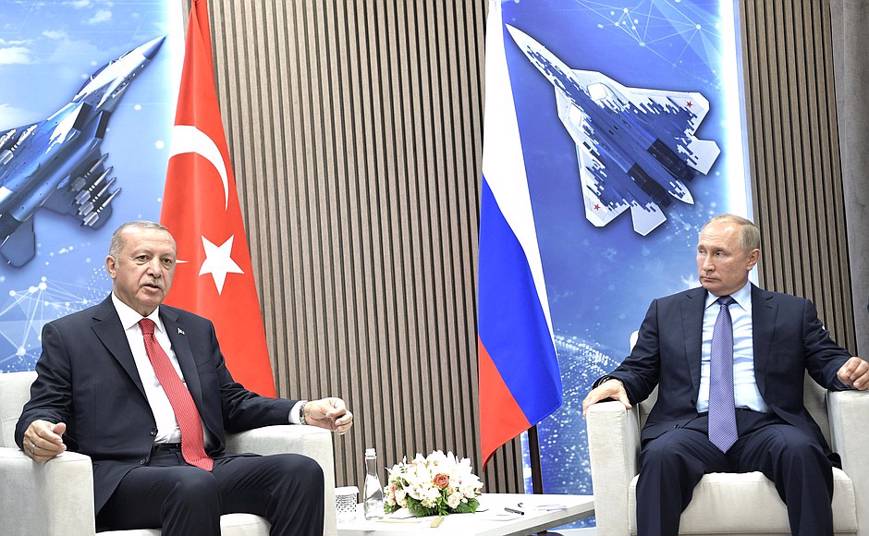
What are the objectives pursued by Russia and Turkey in the Syrian war, and what role does domestic public opinion in each of the countries play in informing their engagement in Syria?
The month-old Turkish military operation in northern Syria has drastically altered the course of the ever-mutating Syrian war.
Turkey’s long-planned incursion is aimed at establishing a lasting “safe zone”, but the strong international reaction to the first move forced Ankara to curtail its ambitions – and also created an opening for Russia to step into the disbalance of power left by the abrupt US withdrawal of forces. Turkish public opinion is overwhelmingly supportive of the country’s incursion into Kurdish-controlled northeast Syria, while in Russia the scale and aims of the Syrian intervention are increasingly unpopular.
Turkish President Recep Tayyip Erdogan seeks to mobilize nationalistic feelings in order to reconstitute his political base, deepening internal animosities and further dividing Turkish society. International isolation as a result of Turkey’s actions may resonate with revived historical misperceptions but it also questions Turkey’s future relationship to its Western allies. Not least, the controversial “strategic partnership” with Russia generates more problems than solutions.
President Vladimir Putin may find satisfaction in exploiting the erratic zigzags in the US policy in the Middle East, but he has always wanted to score a sequence of victories on the cheap – and now he is compelled to commit to a costly and risky engagement. Turkish and Russian intentions in Syria remain far apart, and their compromise can hardly pave the way for more stable arrangement – but can easily trigger new spasms of hostilities.
Pavel Baev is a Research Professor at PRIO, focusing on Russia’s foreign and security policy, including energy, conflict management and military involvement. He follows Russia’s role in the Syrian conflict, and its interaction with other regional actors and global powers, closely.
Pinar Tank is a Senior Researcher at PRIO, who follows Turkish domestic and foreign policies, with a particular emphasis on the Middle East. Her main interests include democratisation, Kurdish-Turkish relations, gender, and political Islam.
MidEast Breakfast
The PRIO Middle East Centre hosts a series of breakfast seminars, catering to Oslo’s diverse community of MidEast watchers. The series will draw attention to current issues, and discuss those in the light of historical, regional and global trends. The MidEast Breakfast provides an opportunity to combine breakfast with food for thought in a compact one-hour format.





